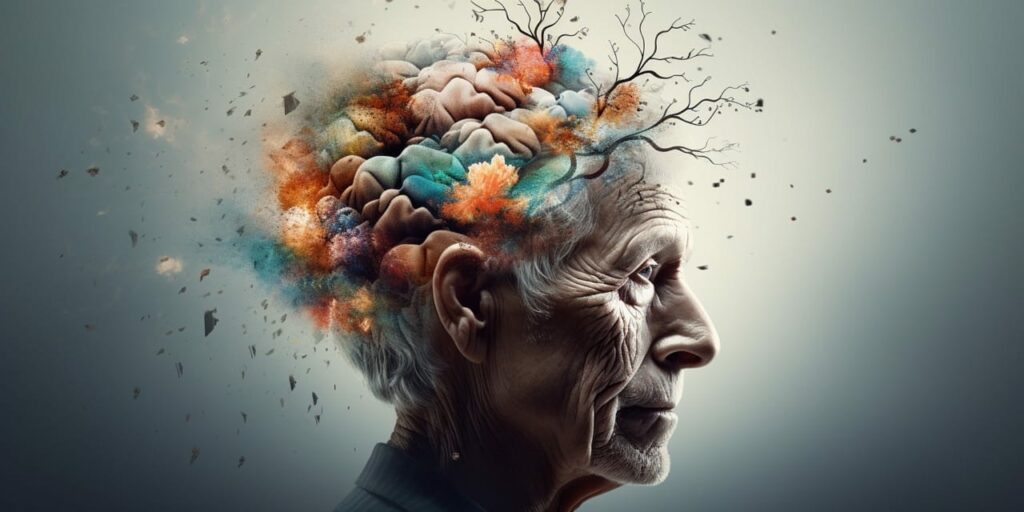Welcome to our comprehensive overview of neurocognitive disorders, where we will explore the fascinating world of cognitive decline. Neurocognitive disorders refer to a range of conditions that affect cognitive abilities, such as memory, attention, language, and problem-solving. As we age, it is essential to understand these disorders to promote cognitive health and enhance the quality of life for individuals who may be affected.
This article will delve into the causes, symptoms, and latest treatments for cognitive decline. By gaining a deeper understanding of neurocognitive disorders, we can equip ourselves with knowledge that empowers us to make informed decisions and support those experiencing these challenges.
So, let’s embark on this journey together and uncover the intricacies of neurocognitive disorders. From memory impairment to executive dysfunction, language difficulties to attention deficits, and problem-solving issues, we will explore the breadth of conditions that fall under the umbrella of neurocognitive disorders.
Stay tuned as we dive into two significant disorders, Alzheimer’s disease and dementia. We will explore their similarities, differences, and the cognitive impairments associated with these conditions.
Additionally, we will discuss the latest advances in treatments for neurocognitive disorders. From pharmacological approaches to non-pharmacological interventions, we will highlight cutting-edge strategies to address cognitive decline and alleviate the specific symptoms associated with these disorders.
By the end of this overview, you will have a comprehensive understanding of neurocognitive disorders, their impact, and available treatment options. With this knowledge, we can contribute to a world that embraces cognitive health and supports individuals affected by neurocognitive disorders.
Types of Neurocognitive Disorders
This section will explore the various types of neurocognitive disorders that individuals may experience. These disorders are characterized by a range of cognitive impairments, including memory impairment, executive dysfunction, language difficulties, attention deficits, and problem-solving issues.
Neurocognitive disorders can have a profound impact on an individual’s daily functioning and quality of life. Understanding the different types of disorders is essential for accurate diagnosis and appropriate treatment.
1. Memory Impairment:
- Individuals with memory impairment experience difficulties in remembering or recalling information, events, or personal experiences.
- Memory impairment can range from mild forgetfulness to more severe forms of amnesia.
2. Executive Dysfunction:
- Executive dysfunction refers to difficulties in planning, organizing, initiating, and monitoring complex tasks.
- It can manifest as problems with decision-making, multitasking, setting goals, and following through with plans.
3. Language Difficulties:
- Individuals with language difficulties may have difficulty understanding or producing spoken or written language.
- Language impairments can involve vocabulary, grammar, comprehension, reading, and writing difficulties.
4. Attention Deficits:
- Attention deficits refer to difficulties in sustaining attention, focusing, or shifting attention between tasks or stimuli.
- Individuals with attention deficits may be easily distracted and have trouble concentrating on specific tasks or conversations.
5. Problem-Solving Issues:
- Problem-solving issues involve difficulties in conceptualizing, analyzing, and solving problems.
- Individuals may struggle with logical reasoning, abstract thinking, and solving everyday challenges effectively.
Healthcare professionals can provide tailored interventions and support to individuals affected by these conditions by understanding the different types of neurocognitive disorders and their associated cognitive impairments. Through early detection and comprehensive treatment approaches, it is possible to enhance cognitive functioning and improve overall well-being.
Alzheimer’s Disease and Dementia
In this section, we will delve into two significant neurocognitive disorders: Alzheimer’s disease and dementia. While these disorders share similarities, they also have distinct characteristics and cognitive impairments associated with them.
Alzheimer’s Disease
Alzheimer’s disease is a progressive neurodegenerative disorder that primarily affects memory, thinking, and behavior. It is the most common cause of dementia, accounting for approximately 60-80% of cases. This debilitating disease typically occurs in older adults, although there are rare cases of early-onset Alzheimer’s disease.
One of the primary cognitive impairments in Alzheimer’s disease is memory loss, specifically in recent events and information. Individuals may have difficulty recalling conversations, names, or important dates. As the disease progresses, cognitive functions such as language abilities, problem-solving skills, and judgment may also decline.
Dementia
Dementia is an umbrella term used to describe a range of symptoms associated with cognitive impairments. It is not a specific disease but rather a syndrome that can be caused by various conditions, including Alzheimer’s disease, vascular dementia, Lewy body dementia, and frontotemporal disorders.
The cognitive impairments in dementia can vary depending on the underlying cause. Common cognitive symptoms include memory loss, impaired judgment, confusion, language difficulties, and problems with attention and focus. These impairments significantly impact a person’s ability to carry out daily activities and may lead to behavioral changes.
Dementia affects millions of people worldwide, and its prevalence is expected to increase as the population ages. It is essential to differentiate between different types of dementia to provide appropriate treatment and support.
Similarities and Differences
While Alzheimer’s disease and dementia are closely related, there are some key differences between the two. Alzheimer’s disease is a specific form of dementia characterized by the accumulation of amyloid plaques and neurofibrillary tangles in the brain. Other types of dementia have distinct underlying causes.
Both Alzheimer’s disease and dementia result in progressive cognitive decline, affecting memory, thinking, and behavior. However, dementia can also manifest with additional symptoms such as motor disturbances, changes in mood and personality, and visual hallucinations, depending on the specific subtype.
It is crucial to accurately diagnose Alzheimer’s disease and dementia to provide appropriate care and support. Early intervention and access to effective treatments can help manage cognitive impairments and improve the overall quality of life for individuals living with these conditions.
Latest Advances in Neurocognitive Disorder Treatments
Neurocognitive disorders, characterized by cognitive decline, memory impairment, executive dysfunction, language difficulties, attention deficits, and problem-solving issues, require comprehensive and innovative treatments to address these complex symptoms. In this section, we will explore the latest advances in both pharmacological and non-pharmacological approaches.
Pharmacological Treatments
Pharmacological interventions play a vital role in managing neurocognitive disorders. Medications can help alleviate specific symptoms and slow down the progression of cognitive decline. Commonly prescribed drugs include cholinesterase inhibitors, which enhance cognitive function and memory, and memantine, which regulates glutamate activity to improve cognition.
Further advancements in pharmacotherapy include the exploration of novel drug targets that aim to address specific cognitive impairments. Researchers are investigating promising compounds that target tau proteins, amyloid-beta plaques, and neuroinflammation, which are hallmarks of disorders like Alzheimer’s disease.
Non-Pharmacological Interventions
In addition to medications, various non-pharmacological interventions are revolutionizing neurocognitive disorder treatment. Cognitive stimulation programs involve engaging patients in activities that stimulate memory, attention, and problem-solving abilities. These programs help maintain cognitive function and slow down cognitive decline.
Another innovative approach is cognitive rehabilitation therapy, which focuses on improving specific cognitive domains affected by neurocognitive disorders. This therapy utilizes techniques such as memory training exercises, attention exercises, and problem-solving tasks tailored to the individual’s needs.
- Psychosocial interventions:
- Individual and group therapy sessions can provide emotional support and help patients and their families cope with the challenges associated with these disorders.
- Educational programs and support groups contribute to valuable information exchange and mutual support.
- Brain stimulation techniques:
- Transcranial magnetic stimulation (TMS) and transcranial direct current stimulation (tDCS) have shown promising results in improving cognitive function and reducing symptoms in some neurocognitive disorders.
- Lifestyle modifications:
- A healthy lifestyle, including regular physical exercise, a balanced diet, and adequate sleep, can support overall brain health and potentially slow down cognitive decline.
- Engaging in mentally stimulating activities like puzzles, reading, and learning new skills may help preserve cognitive function.
By combining pharmacological and non-pharmacological treatments, healthcare professionals can provide comprehensive and tailored care for individuals with neurocognitive disorders. These advancements offer hope for improving the lives of patients and their families, and ongoing research continues to push the boundaries of treatment possibilities.
Final Words
In conclusion, this comprehensive overview has provided valuable insights into neurocognitive disorders, such as Alzheimer’s disease and dementia. These disorders are characterized by cognitive decline, including memory impairment, executive dysfunction, language difficulties, attention deficits, and problem-solving issues.
By understanding the causes, symptoms, and treatment options for neurocognitive disorders, we can take proactive steps to promote cognitive health and improve the quality of life for individuals affected by these conditions. It is crucial to stay informed about the latest advances in treatments, including both pharmacological and non-pharmacological approaches, to address the specific cognitive impairments experienced by individuals with neurocognitive disorders.
By raising awareness and supporting research efforts, we can enhance early detection, access to effective treatments, and provide valuable care and support for those living with neurocognitive disorders. Together, let’s work towards a future where individuals experiencing cognitive decline can lead fulfilling lives and enjoy optimal cognitive health.



